Published on: August 04, 2024 | By: @rprasanth_kumar
Moving to France is an exciting adventure filled with opportunities to explore a rich culture, picturesque landscapes, and a vibrant lifestyle. However, settling into your new life in France involves several essential first steps to ensure a smooth transition.
From navigating the administrative processes to immersing yourself in the local French customs, this guide will help you through the crucial tasks to prioritize upon your arrival in France, helping you to establish a comfortable and fulfilling life in your new home.
Public Transport
The public transport system is very extensive in France with trains, metros, trams, buses, cable cars, and ferries.
- Each city has its own transport company and you can subscribe to a monthly or annual pass with them.
- You can also use websites and apps like citymapper.com to plan your public transport journey across France. The mobile application updates its city maps based on your mobile’s GPS location.
- On your arrival in France, you can purchase a few tickets for daily commutes. After opening a French bank account, you can subscribe and get your public transport card by visiting public transport officers present in some big stations.
- Students and/or those under 26 years qualify for discounted fares when purchasing a public transport subscription. Example: Imagine R card in Il de France region.
For more details, Getting Around: Public Transport System in France.
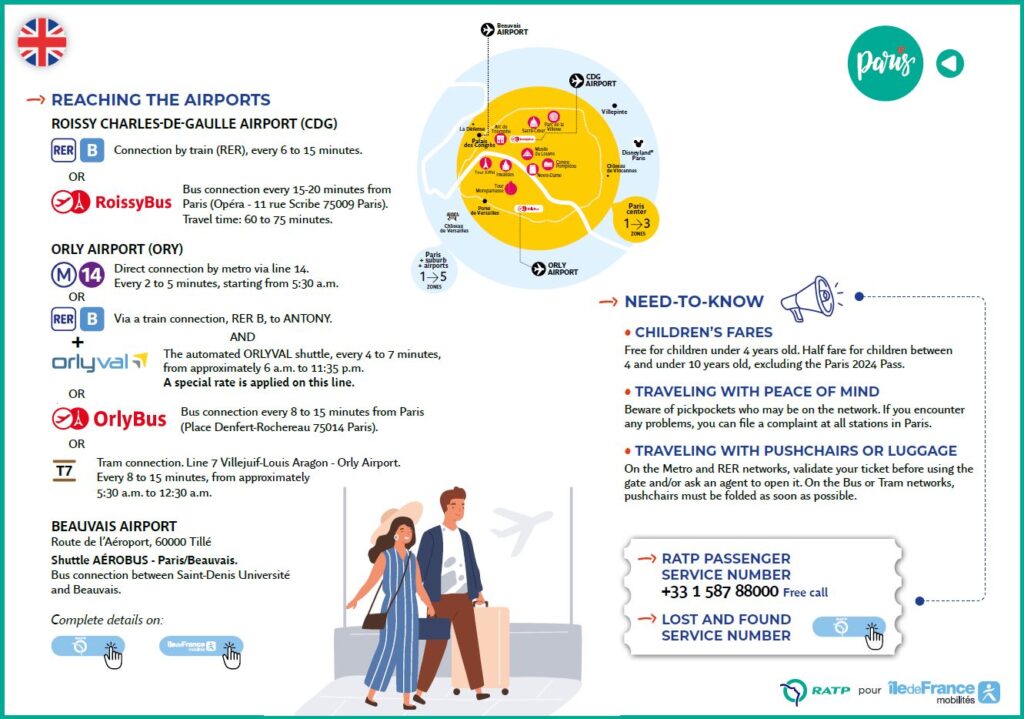
Accommodation
A few days before boarding your flight to France, you must contact the landlord and remind about your arrival. But, If you haven’t found an apartment yet, you can find one via the following options.
- For students, Everything to know about a student accommodation in France?.
- Renting directly with Landlords: PAP – de particulier à particulier, Leboncoin, etc.
- Renting via Private Agencies: Seloger, Lodgis, Logic-immo, Foncia, Century 21, etc. Note: These agencies will charge an application fee (often one month’s rent excluding utilities) for showing you the rental options, organizing visits, entry check, etc.
- Collocations: This option involves sharing an appartement with other tenants or even the landlord. Often includes separate bedrooms and sharing other facilities. You can find these collocations via the following websites. La Carte des colocs, Appartager, Roomlala, Immojeune, Livin-france, Chez-l-habitant, etc.
Housing insurance “assurance habitation”
Housing insurance certificate is mandatory before you can collect the keys to your home. The insurance coverage is for protecting your apartment against water damage, fire, theft, etc as well as third-party liability. If you have a French bank account, you can take out an insurance contract from the bank too.
There are many private insurance companies which provide these contracts. For example:
- Direct Assurance
- Studyassur (students only)
- Assurance Habitation Etudiant (students only)
- SMENO (students only)
- AXA| MAAF | MAE
- Harmonie Mutuelle
Electricity & Gas Connection
If your rent doesn’t include electricity and gas consumption, you must contact an utility provider in France and get these connections. This is the case for most of the rentals in France. Here are some common service providers in France,
- Traditional providers: EDF and Engie
- TotalEnergies. I have been using their service since 2018 and so I highly recommend it. You can use my referral code: 113102919 and receive a 40€ opening bonus.
You can also use the site UFC – Que choisir. to compare pricing from various service providers.

CVEC & College Registration (Students)
The Student and Campus Life Contribution (CVEC – Contribution de vie étudiante et de campus) is a requirement for all students in initial training at a higher education institution.
- Before you complete your student registration, you must provide a certificate proving that you have paid this contribution. It costs 103 euros and must be paid by all students in France.
- This money is invested in the development of services that benefit students.
CVEC Payment
- It is done online at cvec.etudiant.gouv.fr from your computer or smartphone using your credit/debit card.
- If you don’t have a credit/debit card, you can use another person’s card.
Some students are exempted from this payment,
- Refugee students.
- Students in subsidiary protection.
- Students registered as asylum seekers and entitled to remain in France.
- French government scholarship holders.
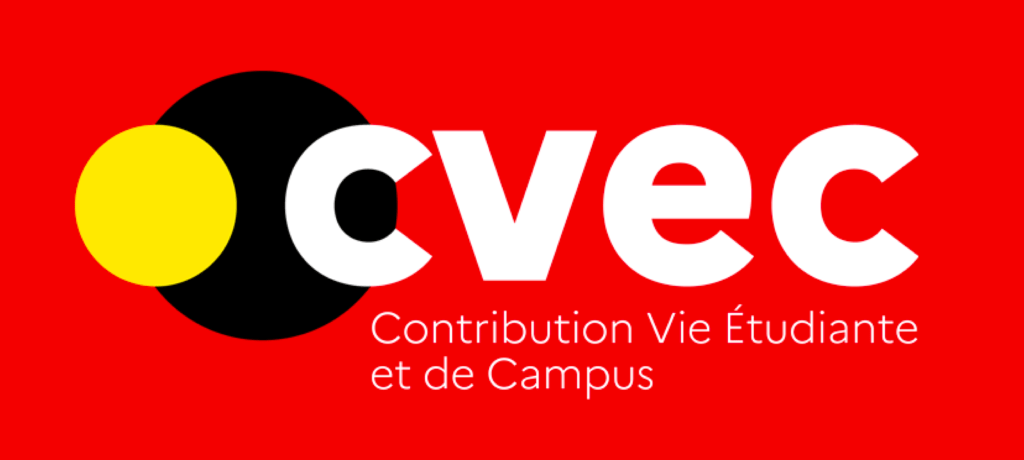
Resident Permit
When you arrive in France, you are obliged to convert your long-stay visa into a valid residence permit. The conversion procedure will depend on the type of your visa.
- VLS Visa: A long-stay visa with the obligation to apply for a residence permit (VLS), simply allows you to come to France and apply for a residence card. You must apply for a resident permit within 2 months of your arrival.
- VLS-T Visa: A VLS-T visa does not require any online validation or a resident permit application after reaching France. Also, the visa can neither be extended nor changed to another category. So, The visa holder must leave France on or before the visa expiry date.
- VLS-TS Visa: A long-stay visa equivalent to a residence permit (VLS-TS) allows you to come to France, stay here, and may allow you to work. You must validate your VLS-TS visa within 3 months of your arrival.
The following articles explains this process in detail, Should I validate my long-stay visa or do I have to apply for a residence permit directly?
Also read Address proof documents for Resident Permits: Justificatif de domicile
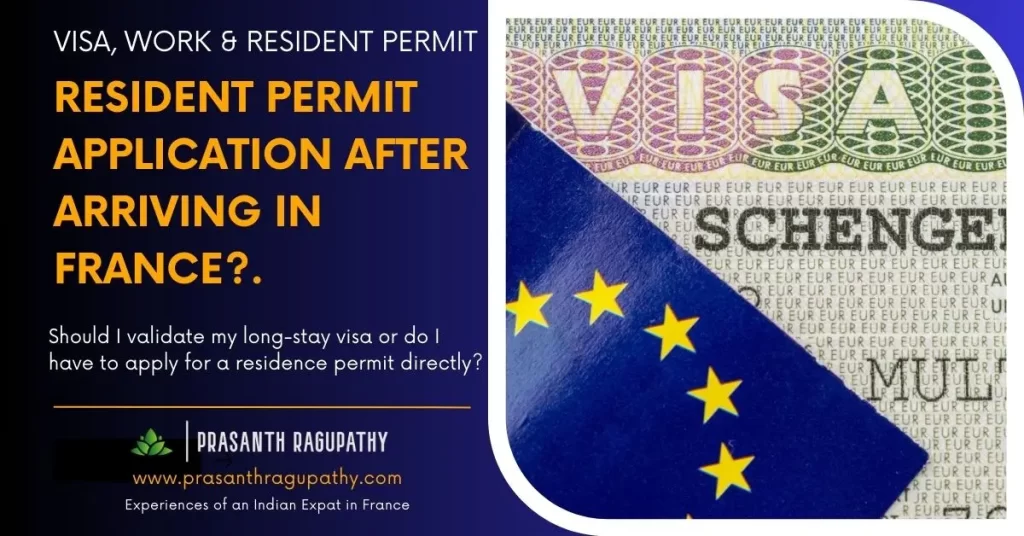
Bank Account
Opening a bank account is one of the basic things to do after reaching the country. Purpose of a bank account in France
- Banking Services: French banks offer a wide range of services, including online banking, wire transfers, savings accounts, loans, and investment options.
- Comfort: Having a local bank account that provides a French IBAN simplifies everyday transactions like paying bills, receiving salaries, and shopping.
- Low Cost: A French account and its credit/debit card will have zero or lower charges compared to a Forex or international card.
- Establishing Residency: Many administrative procedures in France, such as renting an apartment, insurance, visa renewal, CAF, social security, etc might need a French bank account statement or its RIB.
The following articles explain the basics of bank accounts in France,
Note: Stop using your forex card after opening a local bank account.
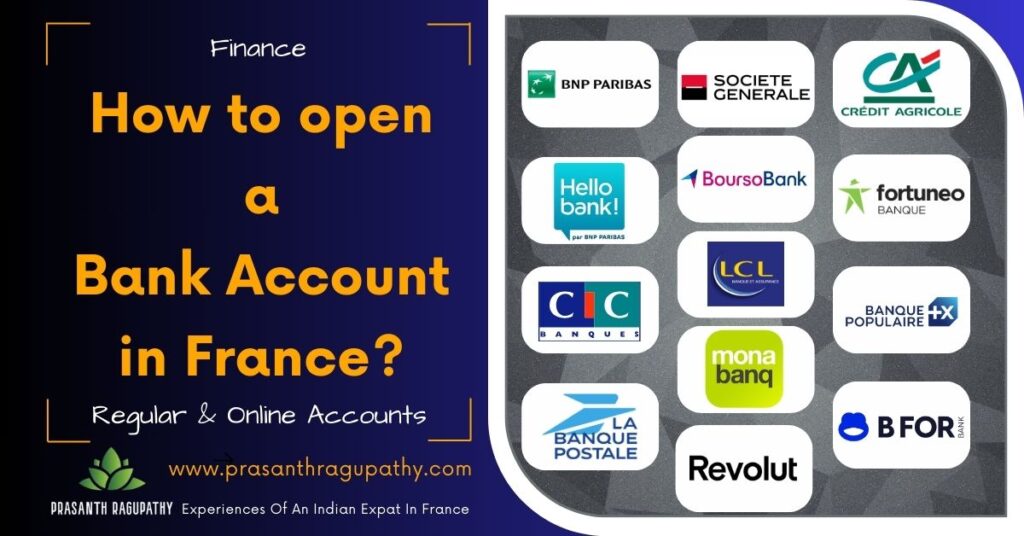
SIM Card
After arriving in France, You can purchase a mobile network connection (SIM card or eSIM),
- Online directly from the mobile applications or websites of French mobile network operators.
- Offline from the boutiques of telecom companies present in shopping malls, airports and local convenience stores across the country.
The following article explains the process of getting a mobile network connection in France. How To Buy a SIM Card In France? | Cheap and Best Mobile Plans in France

Social Security Number
The Social Security system provides free access to the public health insurance coverage in France. It is managed by a network of CPAM (Caisse Primaire d’Assurance Maladie) agencies across France. The system provides a partial reimbursement (upto 70%) of your health expenses in the country. The coverage includes the following basic services such as,
- Doctor and Hospital expenses (consultation, treatment, surgery, etc)
- Expenses for medicines prescribed by a doctor.
- Expenses for Ambulance, when prescribed by a doctor.
The remaining 30% can be covered by a complimentary private health insurance known as mutuelle. This entire process is handled via a unique Social Security Number (SSN) generated after the registration. In addition to health insurance, the SSN is used by a lot of other French government agencies like CAF, Pole Emploi, etc.
SSN Application Process
- I have explained the various steps required to obtain a SSN here, How to Apply for a Social Security Number in France?
- Exception: People on VLS-TS Visitor Visa must complete 3 months in France. Only after this period, they can submit an application for the French SSN.
- If you are a student, the initial application process is completely different. The following article explains this topic in detail. Social Security For International Students In France
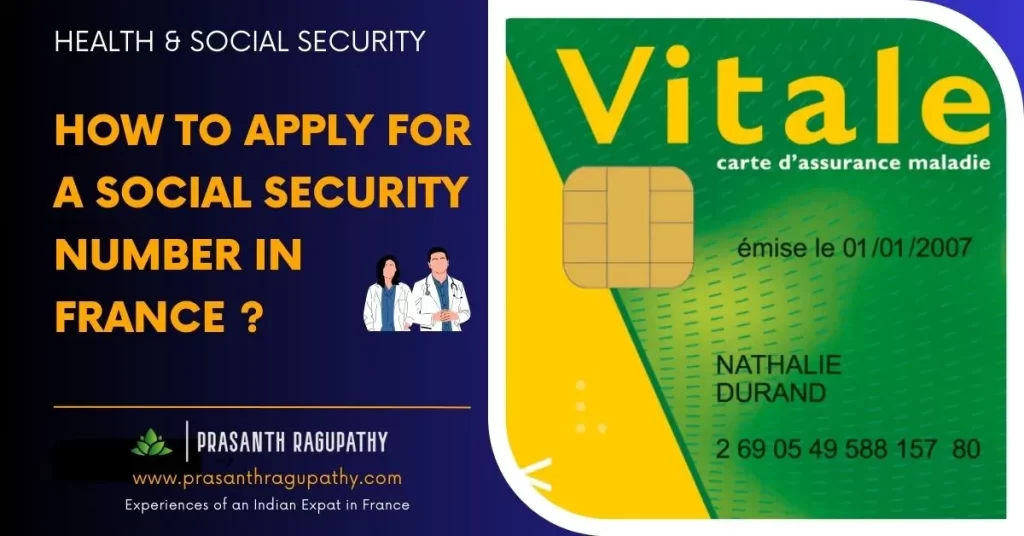
CAF
Aide personnalisée au logement (APL) is a personalized housing assistance that the French government gives to low-income households, students, the unemployed, etc. It is managed by the local CAF offices across France.
You can use an online simulator to estimate your eligibility for housing assistance (APL) from the CAF website. The following article explains the application process, documents required, etc in detail, APL: Housing Rent Subsidy from CAF.
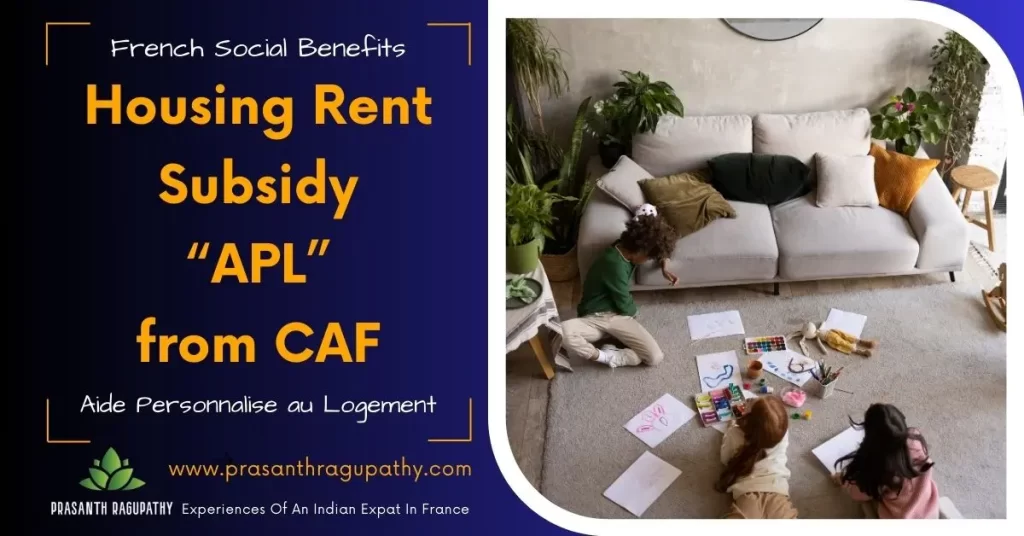
Support This Blog!
If you’ve found my articles helpful, interesting or saving your time and you want to say thanks, a cup of coffee is very much appreciated!. It helps in running this website free for the readers.



Hello Prashanth garu,
Hope you’re doing well. As mentioned by my landlord, she told me to take housing insurance through Paper Nest, which has several options of house insurance in it, to choose one among them.
Can you please suggest which one to take in it? As I have less time left.
Hello Spandana,
As I had already explained multiple times, please ask your questions in the students group.
Comments aren’t checked everyday.
You can take an housing insurance even after reaching France either via the bank where you open a bank account or via insurance companies. I have explained the various options here https://prasanthragupathy.com/2023/07/accommodation-for-students-in-france/
Hi Prasanth,
I just moved to France on a PT SeM visa and I’m waiting for the residence permit. As I moved from Finland (Finnish bank account and phone number still valid), I have not prioritized getting a local SIM card in France. Is this necessary for opening a local bank account or for making the application for SSN, or for other official purposes initially?
Hello Kaushik,
If I was in your situation, I would open a French bank account and a French SIM card. So, it’s your choice to make.
All the best.
Cheers,
Prasanth
PS: If my articles and answers are helpful, please leave your feedback on Trustpilot